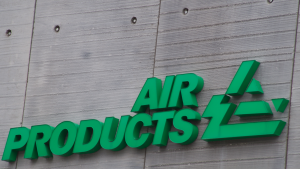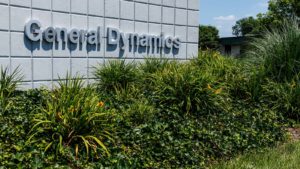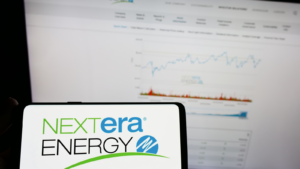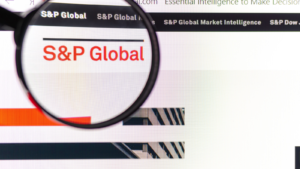Even when measuring them by total returns, or price appreciation and dividends, many of these names have underperformed relative to the broad market. More importantly, there are “dividend aristocrats,” not to mention “dividend kings.” The latter have over 50 years of consecutive dividend growth, that may have performed well in the past but may generate far less stellar future returns.
With this in mind, reconsider buying underperformers or past winners. It’s likely best to stay with names that show promise today and the strongest potential to continue delivering above-average price appreciation and dividend growth.
Whittling down a list spanning dozens of dividend aristocrats, these seven stand out as contenders to crush it, through the rest of the decade and into the decade ahead.
Air Products and Chemicals (APD)

Air Products and Chemicals (NYSE:APD) is a leading provider of industrial gases. Serving a variety of industries, including energy, healthcare and manufacturing, APD has a strong track record of consistent profitability, along with steady earnings and dividend growth.
The stock has 41 years of consecutive annual dividend growth under its belt. That means shares are only nine years from hitting “dividend king” status. At current prices, shares have an annual yield of 2.85%. Also, APD has been increasing its payouts by an average of 9.27% annually for the past five years. Forecasts call for a similarly-sized level of earnings over the next year.
Over a longer time frame, factors like the company’s big bet on low-carbon hydrogen could help APD sustain high single-digit annual earnings growth. Right now, the company has around $15 billion in such projects under development. Admittedly, uncertainty about the “green hydrogen” catalysts has put pressure on shares. So too, has the recent surprise exit of APD’s Chief Operations Officer (COO). Still, as this near-term pullback has pushed the stock down to a more-than-reasonable 20 times forward earnings, for long-term investors this may work in your favor.
Ecolab (ECL)

Ecolab (NYSE:ECL) is a provider of commercial water purification systems and services. End users include the healthcare, hospitality and manufacturing sectors. Since going public in 1957, Ecolab has delivered strong total returns. During this 67-year time frame, the stock has gone from a split-adjusted 6 cents to $246.72 per share.
In other words, $1000 invested in ECL when it first went public would be worth over $4.1 million today. Also, Ecolab has always paid a quarterly dividend, holding “dividend aristocrat” status for the past 31 years. Since 1957, ECL’s dividend rate has increased by nearly 1000-fold. The firm may not experience the same sorts of increases over the next 67 years. Yet, recession-resistant shares are perhaps still poised to deliver more-than-satisfactory returns for conservative investors.
As Stifel analyst Shlomo Rosenbuam recently argued, Ecolab is poised to continue raising its EBIT margins. Therefore, the company could continue to report above-average earnings growth. This could drive further gains, not to mention future increases for ECL’s dividend. And at current prices, this gives the stock a forward yield of 0.93%.
General Dynamics (GD)

For General Dynamics (NYSE:GD), rising geopolitical strife and tensions serve as a growth tailwind for years to come. After a period of stagnant growth, the defense contractor is expected to report more than 21% earnings growth this year.
With this, it’s no surprise that GD stock is up by more than a third over the past twelve months. Although growth is likely to slow down in 2025 and beyond, it could remain at elevated levels for longer than you may think. Irrespective of who wins the White House this November, chances are that military spending by the U.S. and its allies will likely continue to trend higher. Continued growth could benefit shares in three different ways.
First, shares may keep rising, in line with earnings growth. Second, as Seeking Alpha commentator Dhierin Bechai recently argued, GD could re-rate to a higher valuation thanks to this continued growth surge. Third, further growth will enable General Dynamics to maintain its “dividend aristocrat” status. GD has increased dividends 29 years in a row. Shares yield 1.95% annually at current prices. Over the past five years, dividends have increased by an average of 7.04% per year.
NextEra Energy (NEE)

NextEra Energy (NYSE:NEE) is an electric utility company in Florida.It is well known for its greater focus on making the transition from fossil fuel-generated electricity to electricity generated from renewable energy sources. Over the past decade, this has been one of the dividend aristocrats that has outperformed major indices like the S&P 500.
This comes even as NEE stock has been in a slump since 2023. That’s when the rise in interest rates, coupled with waning excitement about NEE’s “green wave”, led to an extended pullback. More recently, however, NextEra Energy shares have bounced back in a big way, rising 25.6% over the past six months. With interest rates soon expected to come down from their multi-decade highs, the impact of high rates is easing on NEE’s valuation.
Recent quarterly results are leading to a resurgence in confidence about NEE’s future growth potential. Earnings forecasts call for high-single digit annual earnings growth. This will likely help drive steady price appreciation going forward. In terms of dividend growth, NEE has increased payouts 28 years in a row. Shares currently yield 2.83%. Dividends have increased by an average of 10.74% annually over the past five years.
Roper Technologies (ROP)

Roper Technologies (NASDAQ:ROP) is a diversified software and technology-enabled products company. Some of its better-known software products include its DAT platform for the trucking industry, as well as its Deltek enterprise resource planning (ERP) software. The company’s shares have a long track record of price appreciation and dividend growth.
Roper Technologies has increased its dividend for 31 years in a row, placing the stock firmly in the “dividend aristocrats” category. Currently yielding 0.52%, dividends have increased by an average of 10.25% annually over the past five years. The last dividend increase, announced last November, came in at 10%. With its long track record of earnings and dividend growth, it’s no surprise that ROP stock commands a fairly rich valuation. Shares currently trade for 31.6 times forward earnings.
However, it may prove worthwhile to pay up for quality and growth with Roper Technologies. As InvestorPlace’s Omor Ibne Ehsan pointed out last month, forecasts call for an earnings growth bonanza to continue for ROP over the next nine years. Between 2024 and 2033, Roper Technologies could go from $18 to $67 per share in annual earnings. Not too shabby, relative to ROP’s current share price, $526.96 per share.
S&P Global (SPGI)

S&P Global (NYSE:SPGI) is not just one of the “dividend aristocrats.” This financial data giant is also one of the “dividend kings,” having implemented annual dividend increases for more than 50 years.
Out of the 500 stocks tracked by the company’s famed S&P 500 Index, SPGI stock is one of only 25 names tracked by the index holding this status. At current prices, shares sport a forward annual dividend yield of 0.79%. Dividends have increased by an average of 11.09% annually for the past five years. SPGI’s small yet steadily-growing dividend is likely to continue providing a boost for total returns. But the real opportunity here is with further capital growth.
Up sixfold over the past decade, SPGI stock has handily outperformed the famed index it manages. While it’s uncertain that another sixfold climb is in the cards for the decade ahead, forecasts calling for 12% annual earnings growth suggest that shares could remain a standout relative to the broad market. Given forecasts call for major indices like the S&P 500 to deliver far less stellar gains going forward compared to their recent above-average performance.
Target (TGT)

Target (NYSE:TGT) is another “dividend king” well-positioned to hold onto its crown in the years ahead. Yes, since the emergence of high inflation and high interest rates several years back, price performance has been choppy for TGT shares.
Still, TGT stock has been bouncing back since late last year, as these headwinds begin to fade. As they keep on dissipating, resulting in a further rebound in Target’s earnings, a further recovery for this $146.45 per share may be in store. Perhaps, to the extent that shares return to their high-water mark, north of $250 per share. Yes, on the surface, this may sound like a tall order. However, this may be within reach, especially if the company’s recently-announced partnership with Shopify (NYSE:SHOP) proves profitable.
Success with this partnership would likely bolster Target’s omnichannel bona fides. In turn, this could convince the market to re-rate TGT, trading for 16 times forward earnings today. It could go to a valuation on par with rival Walmart (NYSE:WMT), which trades for 29 times forward earnings. At current prices, Target has a forward dividend yield of 2.98%. Over the past five years, TGT has increased its dividend by an average of 11.44% annually.
On the date of publication, Thomas Niel did not hold (either directly or indirectly) any positions in the securities mentioned in this article. The opinions expressed in this article are those of the writer, subject to the InvestorPlace.com Publishing Guidelines.
On the date of publication, the responsible editor did not have (either directly or indirectly) any positions in the securities mentioned in this article.
Thomas Niel, contributor for InvestorPlace.com, has been writing single-stock analysis for web-based publications since 2016.
